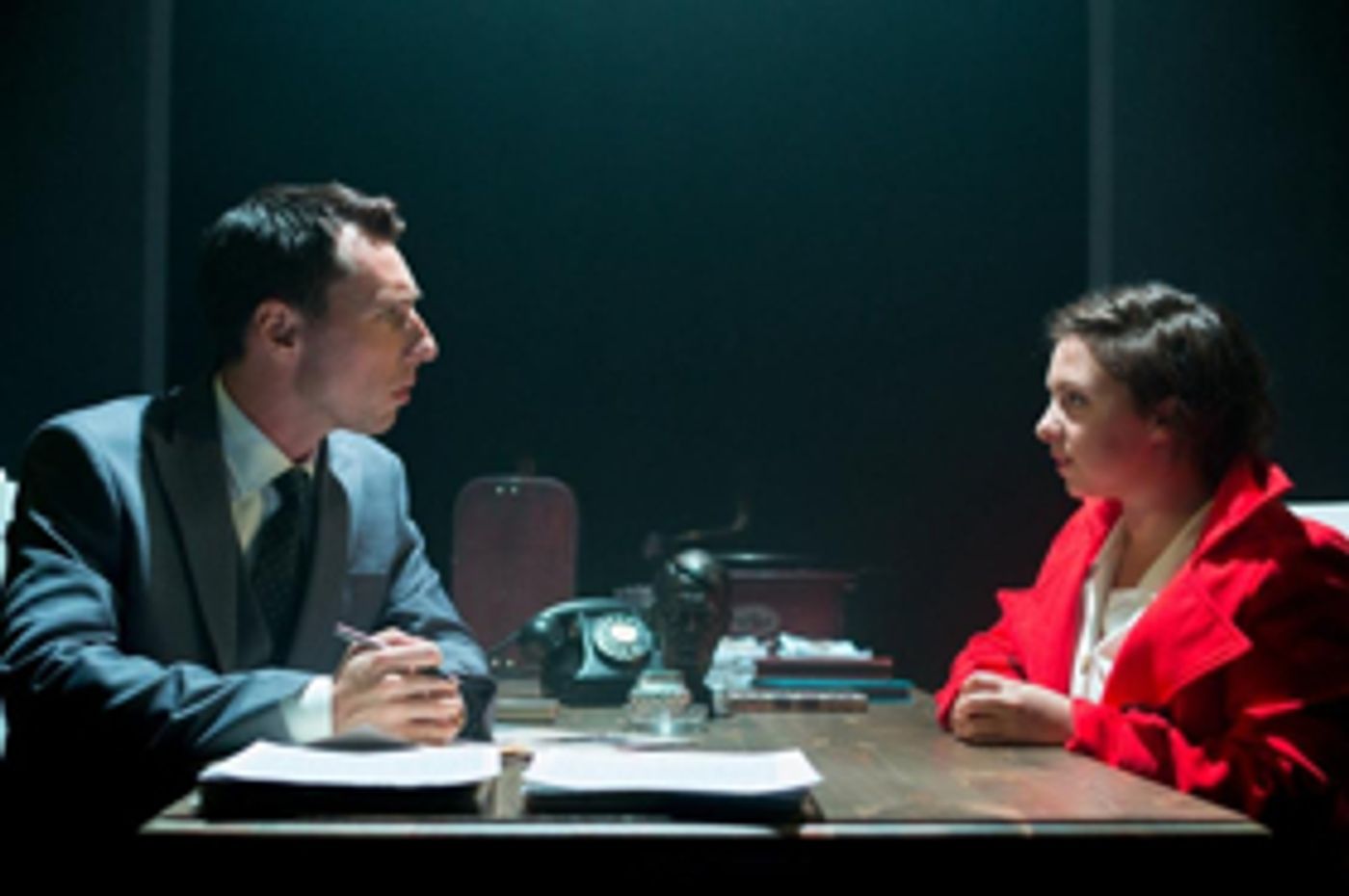Review: THE WHITE ROSE - THE STORY OF SOPHIE SCHOLL, Brockley Jack Studio Theatre

![]()
That the German population voted the Nazis into power has many explanations - and (frighteningly) is becoming less difficult to understand every day. It's harder to explain why, once the horrors of the regime and the privations of total war became immediate and obvious, people did not rise up to overthrow the strutting cabal of martinets who had hijacked their country. Perhaps, more accurately, that they did not even try to overthrow their brutal masters.
Well, some did.
Ross McGregor's play tells the story of one such group: The White Rose. At first. they are typical highly educated, politically engaged, attractive young people - flirting, squabbling, throwing quotes from Schiller, Shakespeare and Kant into conversation, agitated and agitating that things should be better. In 1983, that was me, but this is 1943 and the penalties for such youthful brio are not today's embarrassing photos on social media that you hope you have taken down before that job interview, but an interrogation from the Gestapo and, after a summary trial, execution.
Told in flashback, we see 21 year-old Sophie Scholl becoming more and more convinced of the need to make a stand with her brother Hans, the most committed of the group, taking the role of the ideological engine of its non-violent strategy. We meet the intense one, the joker, the older one and the on-off girlfriend - they would be a band if they had got together 40 years later. There's the reluctant Wehrmacht officer boyfriend too, believing in his country and his destiny rather than its leaders Even the Gestapo man is no monster, doing his job because it's better than being a rural policeman.
(As an aside, it's always easier to think about the Nazis' crimes in the abstract - 6 million, the town-like scale of Auschwitz, all those arms raised in unison at Nuremberg. It's when we see people like us coming together to deliver the millions of small actions that culminated in The Holocaust or the deaths on the Eastern Front that it becomes harder to bear.)
Arrows and Traps have a fine track record of creating serious theatre through fine acting, strong scripts and crisp direction and this play fits into that template perfectly. Lucy Ioannou makes Sophie girlishly naive, yet fully aware of the stakes in play and the likely outcome of her commitment to the cause. Will Pinchin's Hans continually champs at the bit, always wanting to do more, more quickly, more effectively, edging closer and closer to abandoning non-violence, but he never topples into a caricature terrorist.
They get strong support from a cast keen to make their characters as rounded and human as possible. Conor Moss captures the charisma of the slightly camp and fearsomely brave Alexander Schmorell, Pearce Sampson is both proud family man and full member of the group as Christoph Probst. Given the tricky job of holding the narrative together, Christopher Tester is excellent as Gestapo officer, Mohr, a Nazi, but an ordinary bloke too.
As is often the case with one person taking on writing and directing duties, the play proves to be too long. Having established the characters and the extreme jeopardy before the interval, the second half spends too much time going over the same ground and, since even those in the audience who do not know the story of Sophie Scholl will guess the conclusion, the narrative runs out of steam long before its noble, tragic ending.
That said, this is a bold production - there's scenes of something akin to contemporary dance to illustrate the violence on the streets and judicious use of scenes from Triumph of the Will projected with technical aplomb, avoiding the need for too much exposition.
And it is, as the heartbreaking photos that close the play prove beyond question, a story that still needs to be told.
And told.
And told.
The White Rose - The Story of Sophie Scholl continues at the Brockley Jack Studio until 4 August.
Photo Davor Tovarlaza @ The Ocular Creative
Reader Reviews
Videos

